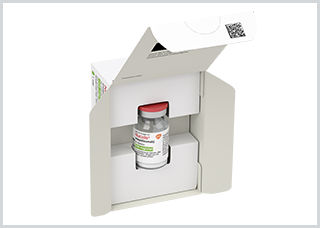Montelukast is a selective and orally active leukotriene receptor antagonist that inhibits the cysteinyl leukotriene CysLT4 receptor. Cysteinyl leukotrienes and leukotriene receptor occupation have been correlated with the pathophysiology of asthma.
Indications
Montelukast is indicated for the prophylaxis and chronic treatment of asthma in adults and pediatric patients from 6 months of age and older.
Dosage & Administration
Prophylaxis of asthma
Adult and child over 15 years: 10 mg once daily in the evening
Children 6–15 years: 5 mg once daily in the evening
Children 6 months–6 years: 4 mg once daily in the evening.
[wp_ad_camp_1]
Seasonal allergic rhinitis
Adult and children over 15 years: 10 mg once daily in the evening
No dosage adjustment is necessary for the elderly, or for patients with renal insufficiency or mild to moderate hepatic impairment.
Contraindications
Montelukast is contraindicated to patients with hypersensitivity to any component of this product.
Warning & Precautions
Montelukast should not be used in the reversal of bronchospasm in acute asthma attacks (in case of status asthmaticus). Patients should be advised never to use oral tablets of Montelukast to treat acute asthma attacks. Montelukast should not be substituted for inhaled or oral corticosteroids. Patients with known aspirin sensitivity should continue avoidance of aspirin or other NSAID, while taking Montelukast. In rare cases, patients on therapy with Montelukast may present with systemic eosinophilia, sometimes presenting with clinical features of vasculitis consistent with Churg-Strauss syndrome, a condition, which is often treated with systemic corticosteroid therapy. Physician should be alert to eosinophilia, vasculitic rash, worsening pulmonary symptoms, cardiac complications, and/or neuropathy presenting in their patients. A causal association between Montelukast and these underlying conditions has not been established.
Side Effects
Generally Montelukast is well-tolerated. Side effects include dizziness, headache, diarrhea, restlessness, abdominal pain, cough, fever, asthenia, rash and upper respiratory tract infection.
Drug Interaction
Montelukast has been administered with other therapies routinely used in the prophylaxis and chronic treatment of asthma with no appropriate increase in adverse reactions.
Cytochrome P-450 inducers: Although Phenobarbital induces hepatic metabolism, no dosage adjustment for Montelukast is recommended. It is reasonable to employ appropriate clinical monitoring when potent cytochrome P-450 enzyme inducers, such as Phenobarbital or Rifampin, are co-administered with Montelukast.
Use in Pregnancy & Lactation
Pregnancy: There are no adequate and well-controlled studies of Montelukast in pregnant women. Because animal reproductive studies are not always predictive of human response, so Montelukast should be used during pregnancy only if clearly needed.
Lactation: It is not known if Montelukast is excreted in human milk. Because many drugs are excreted in human milk, so caution should be exercised when Montelukast is given to a nursing mother.
Overdose
There were no adverse experiences reported in the majority of overdosage reports. The most frequent adverse experiences observed were thirst, mydriasis, hyperkinesia, and abdominal pain. In the event of overdose, it is reasonable to employ the usual supportive measures; e.g., remove unabsorbed material from the gastrointestinal tract, employ clinical monitoring, and institute supportive therapy, if required.







